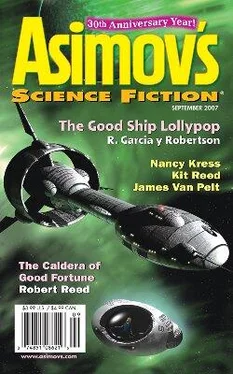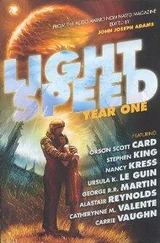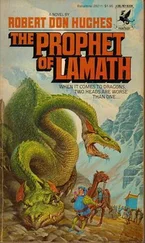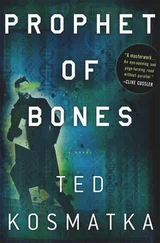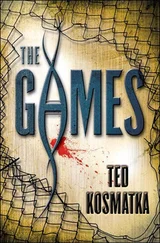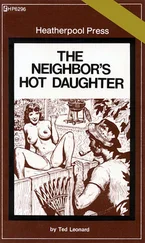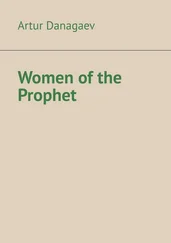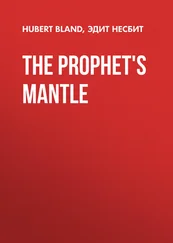Ted Kosmatka - The Prophet of Flores
Здесь есть возможность читать онлайн «Ted Kosmatka - The Prophet of Flores» весь текст электронной книги совершенно бесплатно (целиком полную версию без сокращений). В некоторых случаях можно слушать аудио, скачать через торрент в формате fb2 и присутствует краткое содержание. Год выпуска: 2007, Издательство: Asimov's Science Fiction, September 2007, Жанр: Альтернативная история, на английском языке. Описание произведения, (предисловие) а так же отзывы посетителей доступны на портале библиотеки ЛибКат.
- Название:The Prophet of Flores
- Автор:
- Издательство:Asimov's Science Fiction, September 2007
- Жанр:
- Год:2007
- ISBN:нет данных
- Рейтинг книги:5 / 5. Голосов: 1
-
Избранное:Добавить в избранное
- Отзывы:
-
Ваша оценка:
- 100
- 1
- 2
- 3
- 4
- 5
The Prophet of Flores: краткое содержание, описание и аннотация
Предлагаем к чтению аннотацию, описание, краткое содержание или предисловие (зависит от того, что написал сам автор книги «The Prophet of Flores»). Если вы не нашли необходимую информацию о книге — напишите в комментариях, мы постараемся отыскать её.
The Prophet of Flores — читать онлайн бесплатно полную книгу (весь текст) целиком
Ниже представлен текст книги, разбитый по страницам. Система сохранения места последней прочитанной страницы, позволяет с удобством читать онлайн бесплатно книгу «The Prophet of Flores», без необходимости каждый раз заново искать на чём Вы остановились. Поставьте закладку, и сможете в любой момент перейти на страницу, на которой закончили чтение.
Интервал:
Закладка:
Q: Can you give an example?
A: Most dogs would fall into this category, having been bred by man to suit his needs. While physically different from each other, when you study their genes, they’re all one species—though admittedly divided into several distinct clades.
Q: So you’re saying God created the original dog, but Man bred the different varieties?
A: You called it God, not me. And for the record, honey, God created the gray wolf. Man created dogs.
—excerpted from the trial of geneticist Michael PooreIt came the next morning in the guise of police action. It came in shiny new Daihatsus with roll-bars and off-road tires. It came with guns. Mostly, it came with guns.
Paul heard them before he saw them, men shouting in a language he could not understand. He was with James at the cave’s entrance. When Paul saw the first assault rifle, he sprinted for the tents. He slid the DNA lozenges into a pouch in his belt and punched numbers on the sat phone. Gavin picked up on the second ring. “The police are here,” Paul said.
“Good Lord, I just spoke to officials today,” Gavin said. There was shouting outside the tents—angry shouts. “They assured me nothing like this would happen.”
“They lied.”
Behind him, James said, “This is bad. This is very bad.”
“Where are you?” Paul asked.
“I’m still in Ruteng,” Gavin said.
“Then this will be over by the time you can get here.”
“Paul, it’s not safe for you th—”
Paul hung up. Tell me something I don’t know .
He took his knife from his sample kit and slit the back of the tent open. He slid through, James following close behind. Paul saw Margaret standing uncertain at the edge of the jungle. Their eyes met and Paul motioned toward the Jeeps; on the count of three, they all ran for it.
They climbed in and shut the doors. The soldiers—for that’s what Paul knew they were now—the soldiers didn’t notice them until Paul started the engine. Malay faces swung around, mouths open in shouts of outrage.
“You’ll probably want your seatbelts on for this,” Paul said. Then he gunned it, spitting dirt.
“Don’t shoot,” James whispered in the backseat, eyes closed in prayer.
“What?” Paul said.
“If they shoot, they’re not police.”
A round smashed through the rear window and blew out a chunk of the front windshield, spidering the safety glass.
“Shit!” Margaret screamed.
A quick glance in the rear-view, and Paul saw soldiers climbing into one of the Daihatsus. Paul yanked the wheel right.
“Not that way!” Margaret shouted. Paul ignored her and floored the accelerator.
Jungle whipped past, close enough to touch. Ruts threatened to buck them from the cratered roadway. A Daihatsu whipped into view behind them. Shots rang out, a sound like Chinese firecrackers, the ding of metal. They rounded the bend, and the river came into view—big and dumb as the sky. Paul gunned the engine.
“We’re not going to make it across!” James shouted.
“We only need to get halfway.”
Another shot slammed into the back of the Jeep.
They hit the river like a slow-speed crash, water roaring up and over the broken windshield—the smell of muck suddenly overpowering.
Paul stomped his foot to the floor.
The Jeep chugged, drifted, caught gravel. They got about halfway across before Paul yanked the steering wheel to the left. The world came unstuck and started to shift. The right front fender came up, rocking with the current. The engine died. They were floating.
Paul looked back. The pursuing vehicle skidded to a halt at the shoreline, and men jumped out. The Jeep heaved, one wheel pivoting around a submerged rock. “Can you swim?” Paul asked.
“Now you ask us?”
“I’d unbuckle if I were you.”
The Jeep hit another rock, metal grinding on stone, then sky traded places with water, and everything went dark.
They dragged themselves out of the water several miles downriver, where a bridge crossed the water. They followed the dirt road to a place called Rea. From there they took a bus. Margaret had money.
They didn’t speak about it until they arrived at Bajawa.
“Do you think they’re okay?” Margaret asked.
“I think it wouldn’t serve their purpose to hurt the dig team. They only wanted the bones.”
“They shot at us.”
“Because they assumed we had something they wanted. They were shooting at the tires.”
“No,” she said. “They weren’t.”
Three rented nights in the hotel room, and James couldn’t leave—that hair like a great big handle anybody could pick up and carry, anybody with eyes and a voice. Some of the locals hadn’t seen red hair in their lives, and James’s description was prepackaged for easy transport. Paul, however, blended—just another vaguely Asian set of cheekbones in the crowd, even if he was a half a foot taller than the locals.
That night, staring at the ceiling from one of the double beds, James said, “If those bones aren’t us … then I wonder what they were like.”
“They had fire and stone tools,” Paul said. “They were probably a lot like us.”
“We act like we’re the chosen ones, you know? But what if it wasn’t like that?”
“Don’t think about it,” Margaret said.
“What if God had all these different varieties … all these different walks, these different options at the beginning, and we’re just the ones who killed the others off ?”
“Shut up,” she said.
“What if there wasn’t just one Adam, but a hundred Adams?
“Shut the fuck up, James.”
There was a long quiet, the sound of the street filtering through the thin walls. “Paul,” James said. “If you get your samples back to your lab, you’ll be able to tell, won’t you?”
Paul was silent. He thought of the evaluation team and wondered.
“The winners write the history books,” James said. “Maybe the winners write the bibles, too. I wonder what religion died with them.”
The next day, Paul left to buy food. When he returned Margaret was gone.
“Where is she?”
“She left to find a phone. She said she’d be right back.”
“Why didn’t you stop her?”
“I couldn’t.”
Day turned into evening. By darkness, they both knew she wasn’t coming back.
“How are we going to get home?” James asked.
“I don’t know.”
“And your samples. Even if we got to an airport, they’d never let you get on the plane with them. You’ll be searched. They’ll find them.”
“We’ll find a way once things have settled down.”
“Things are never going to settle down.”
“They will.”
“No, you still don’t get it. When your entire culture is predicated on an idea, you can’t afford to be proven wrong.”
Out of deep sleep, Paul heard it. Something.
He’d known this was coming, though he hadn’t been aware that he’d known, until that moment. The creak of wood, the gentle breeze of an open door. Shock and awe would have been better—an inrush of soldiers, an arrest of some kind, expulsion, deportation, the legal system. A silent man in the dark meant many things. None of them good. The word assassin rose up in his mind.
Paul breathed. There was a cold in him—a part of him that was dead, a part of him that could never be afraid. A part of him his father had put there. Paul’s eyes searched the shadows and found it, the place where a shadow moved, a breeze that eased across the room. If there was only one, he had a chance.
Paul thought of making a run for it, sprinting for the door, leaving the samples and this place behind; but James, still sleeping, stopped him. He made up his mind.
Читать дальшеИнтервал:
Закладка:
Похожие книги на «The Prophet of Flores»
Представляем Вашему вниманию похожие книги на «The Prophet of Flores» списком для выбора. Мы отобрали схожую по названию и смыслу литературу в надежде предоставить читателям больше вариантов отыскать новые, интересные, ещё непрочитанные произведения.
Обсуждение, отзывы о книге «The Prophet of Flores» и просто собственные мнения читателей. Оставьте ваши комментарии, напишите, что Вы думаете о произведении, его смысле или главных героях. Укажите что конкретно понравилось, а что нет, и почему Вы так считаете.
